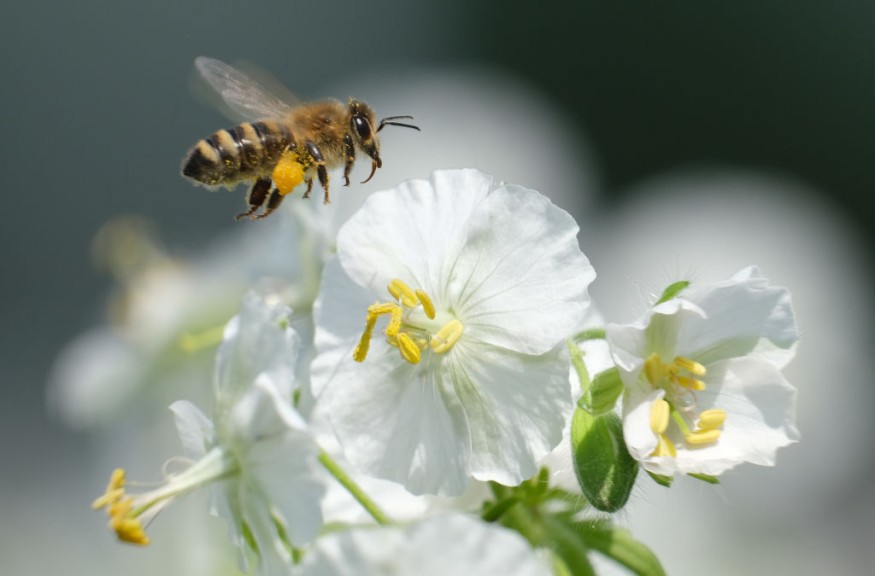
Researchers warn that climate crisis could lead to a potential "cascading effect" on plant pollination and the ecosystem as a whole. They believe that a large number of bumblebees, leafcutters and mason bees, among others, will decline as temperature rises.
Larger species of bees like bumblebees have low heat tolerance, which makes their population susceptible to detrimental effects of global warming. Meanwhile, the smaller-bodied bees are not and in fact, they tend to even grow in abundance.
Study finds that further warming of the earth may result in more smaller bees but fewer bumblebees, The Guardian reported. While this may not be as alarming as it sounds, this could affect plant reproduction and "drastically reshape bee communities."
Survival of the Fittest
Although bees are evolving in real-time due to warming temperatures, not all species can withstand the wrath of changing climate.
According to research published Wednesday in the journal Proceedings of the Royal Society B, climate change may reshape bee pollinator communities, with bees increasing in abundance than the others, and potentially leading to novel plant-pollinator interactions and changes in plant reproduction. The US-based study examined more than 20,000 bees over eight years in an area of the Rocky Mountains to determine how they react to certain climatic conditions.
The authors said that regardless of the changing environmental conditions from year to year, the region from where they took samples from was "particularly vulnerable to climate change".
Moreover, findings suggest that climate-induced changes in temperature, snowpack, and summer precipitation reduced the population of bigger bees, but particularly larger decline for bumblebees. "This group is more threatened under climate warming than other bees in our system," the researchers wrote. It is for the reason that these dominant pollinators have a lower tolerance for heat than other bees and move to cooler regions at higher altitudes to survive.
Also read : Do Your Cats Intentionally Wake You Up in the Wee Hours After Midnight? Here's How to Avoid That
Cascading Effects on Pollination and Whole Ecosystem
Scientists identified three key changes in bee traits - like diet and body size - as a result of warming temperatures, according to Inverse.
First, the distribution of certain bees relative to the larger bee community changes, as discussed above. Second, comb-building cavity nesters fared worse in warmer temperatures compared to soil-nesting bees. Finally, researchers found that climate change also affected the bees' diet in a surprising way.
Bees are perhaps the world's most essential pollinators. According to the UN, 75% of 115 top global food crops, including cocoa, coffee, almonds and cherries were affected by environmental changes. One in six species of bees have already gone "regionally extinct" somewhere in the world due to climate crisis.
Specifically focused on mountainous areas, the study indicates that global warming will alter important traits in bee communities as a whole. Since bees widely aid plant reproduction, humans should be aware that our fate is also at stake when climate change reaches its full extent. However, it is also possible that other bees will be unaffected or could even benefit from climate change.
"Bees vary greatly in their foraging behavior and flower preferences across species, so by only focusing on bumblebees, we cannot fully understand how pollination services will become altered under climate change," the research concludes.
© 2025 NatureWorldNews.com All rights reserved. Do not reproduce without permission.





